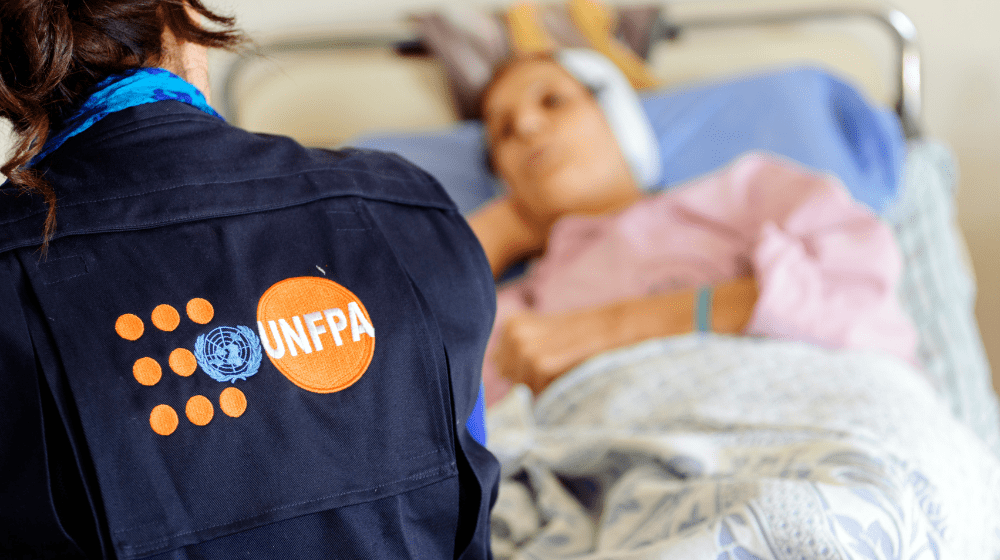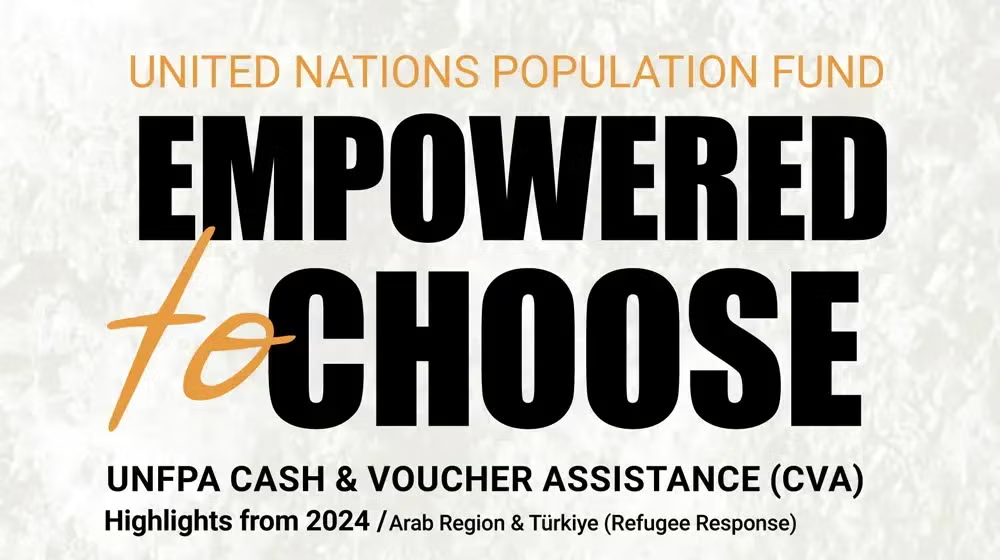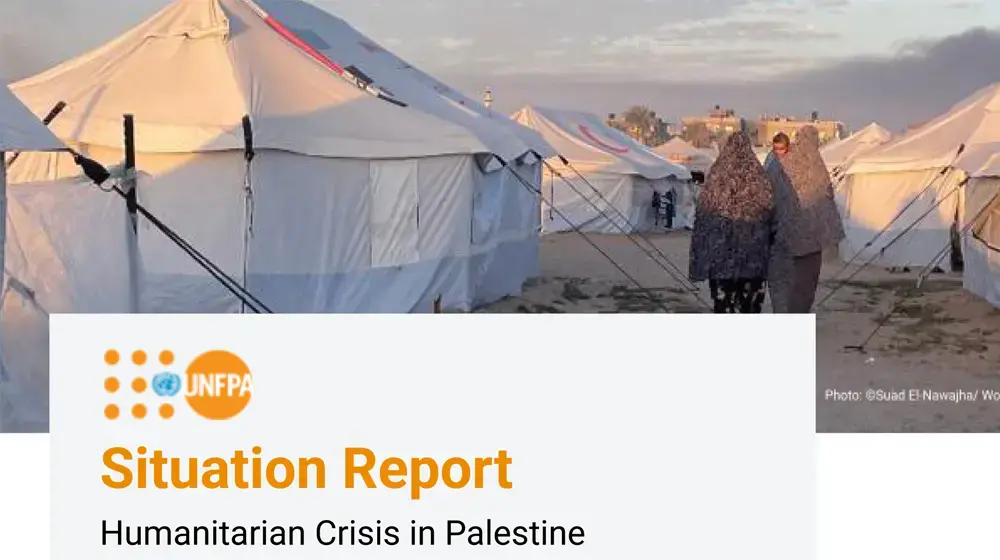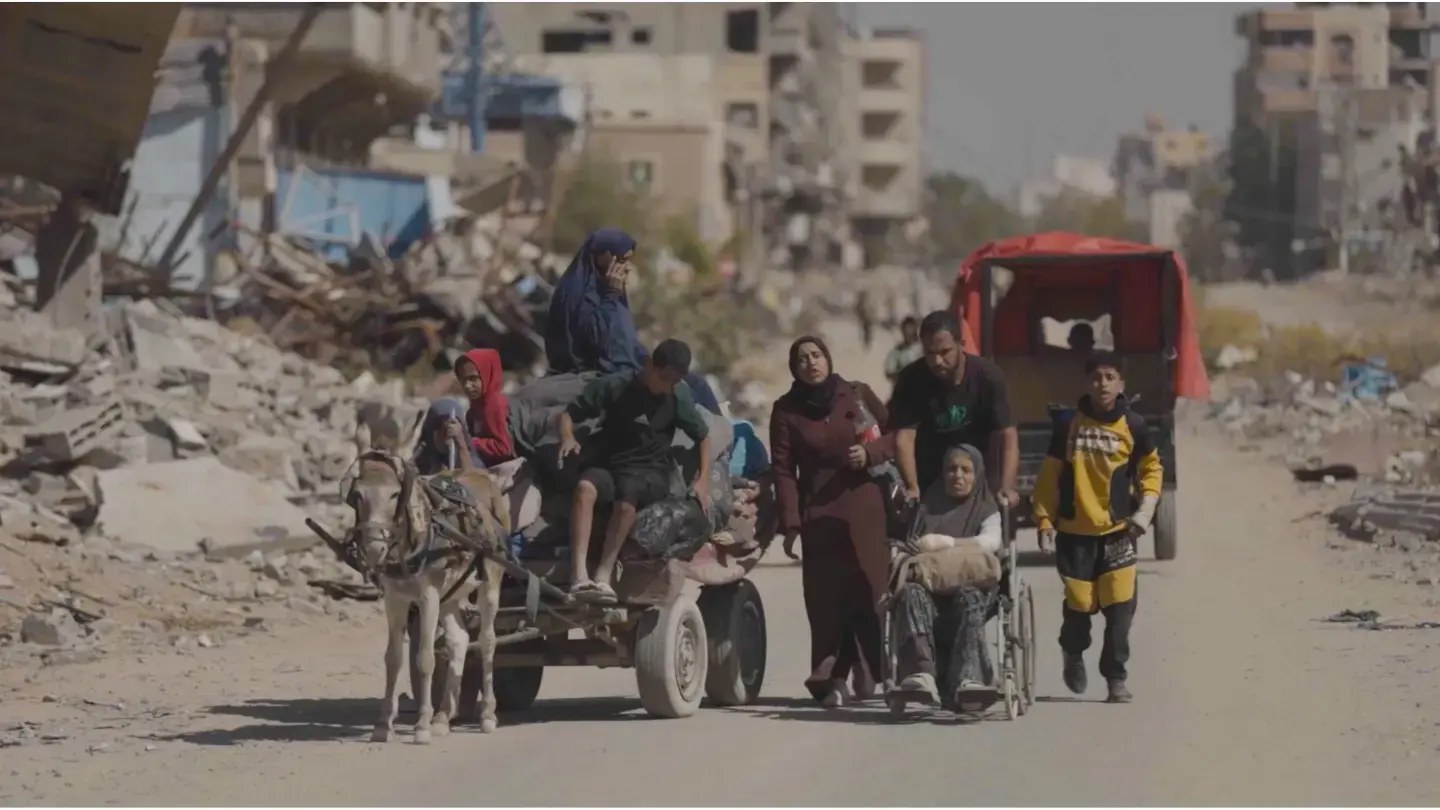(Amman, 3 July, 2024) — Over the past year, humanitarian funding from the European Union (EU) has enabled the United Nations Population Fund (UNFPA) to deliver much-needed care and protection to nearly 300,000 Syrians throughout the country, primarily women and girls. The much-needed assistance, totalling EUR 14.6 million between 2023 and 2025, includes sexual and reproductive health (SRH) services and the prevention and response to gender-based violence (GBV), delivered from Damascus and cross-border from Gaziantep.
Despite the sustained efforts of humanitarian actors, the Syria crisis remains one of the world’s most complex humanitarian and protection emergencies. In 2024, 16.7 million people are in need of humanitarian assistance — the highest number since the onset of the crisis in 2011. Among them, 8.4 million women and girls, around 4.1 million of whom are of reproductive age.
A recent desk review conducted by UNFPA has revealed significant challenges in healthcare access across Syria, impacting essential health services drastically. Meanwhile, women and girls continue to face human rights violations that include unlawful killings, arbitrary deprivation of liberty, and gender-based violence and discrimination, all of which have become normalised in recent years. UNFPA remains unwavering in its commitment to delivering a harmonised regional response to ensure that women and girls are protected from violence while also having access to quality SRH services — a vision that cannot be realised without the generous support of donors like the EU.
"The health, rights, and dignity of women and girls in Syria are irreplaceable," remarked Laila Baker, UNFPA’s Regional Director for the Arab States. "Thanks to the EU's formidable partnership and support to our joint commitments, we have been able to provide essential sexual and reproductive health and protection services throughout Syria, including in rural and hard-to-reach areas, where such services are often scarce."
A recent impact assessment across Syria revealed that community members highly value UNFPA-supported services, with 90 percent of respondents rating these services as "absolutely essential" or "very important." Additionally, women and girls surveyed emphasised the scarcity of such services in their communities, underscoring the indispensable nature of a coordinated, impactful response.
About UNFPA
UNFPA is the United Nations sexual and reproductive health agency. UNFPA's mission is to deliver a world where every pregnancy is wanted, every childbirth is safe and every young person's potential is fulfilled. UNFPA calls for the realisation of reproductive rights for all and supports access to a wide range of sexual and reproductive health services, including voluntary family planning, quality maternal health care, and comprehensive sexuality education.
About EU Humanitarian Aid
The European Union and its Member States are the world's leading donor of humanitarian aid. Relief assistance is an expression of European solidarity with people in need all around the world. It aims to save lives, prevent and alleviate human suffering, and safeguard the integrity and human dignity of populations affected by human-made disasters or those caused by natural hazards.
Through its Civil Protection and Humanitarian Aid Operations department, the European Union helps millions of victims of conflict and disasters every year. With headquarters in Brussels and a global network of field offices, the EU provides assistance to the most vulnerable people on the basis of humanitarian needs.
For more information, please contact:
In Cairo: Samir Aldarabi, Regional Media Adviser for the United Nations Population Fund for the Arab States Region, +201068484879, aldarabi@unfpa.org
In Amman: Jafar Irshaidat, Communications Specialist, United Nations Population Fund / Regional Humanitarian Hub for Syria and the Arab States, +962797300157, irshaidat@unfpa.org





